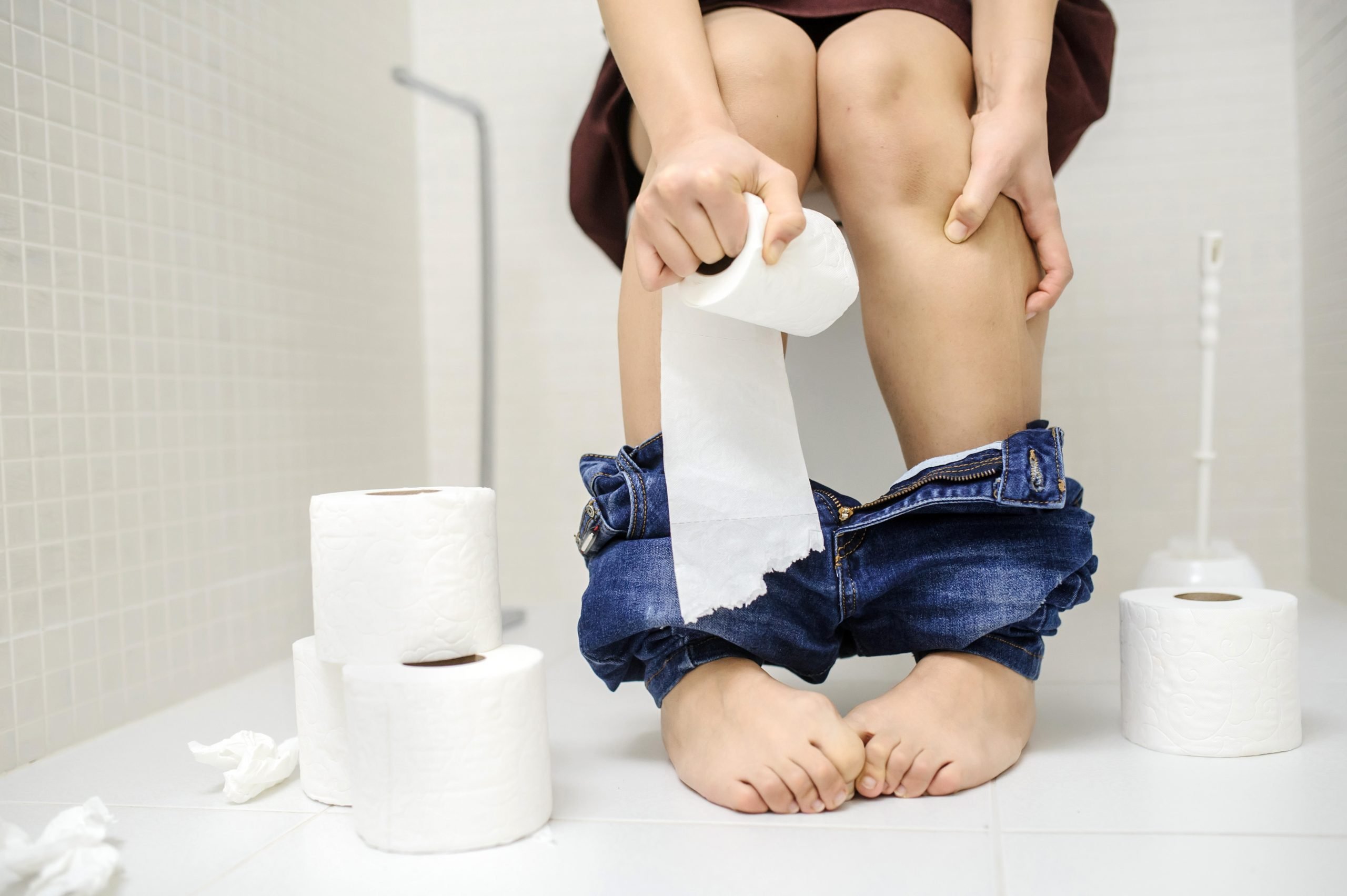Rectal pain – how to resolve this using diet
- Treatments, Testing and Diagnosis
Many people with rectal pain feel uncomfortable talking about their symptoms and how it affects their lives.
However, it is relatively common and can have many causes.
In this article we are going to explain what rectal pain is, the common causes and treatments.

What is rectal pain?
Rectal pain occurs when someone is experiencing pain in their rectum. The rectum is at the end of the intestines joining the anus. So, you may feel like you have pain coming from your bottom.
It is difficult to determine how many people are affected by rectal pain as people are often not forthcoming about their symptoms because it can be uncomfortable to discuss. However, a study published in the British Medical Journal estimated that around 7% of the population experience this (1).
Research has also shown that people with constipation or diarrhoea are more likely to have rectal pain and other anal symptoms (2).
Common causes
Rectal pain can be a symptom of multiple health conditions but is sometimes unexplained. Common causes include (3):
- Constipation
- Haemorrhoids (piles)
- Anal fissures
- Anal fistulas and abscesses
Less common causes include (3):
- STIs
- Fungal infections
- Rectal/anal cancer
Haemorrhoids
Haemorrhoids are a common cause of rectal pain. They are lumps caused by swollen blood vessels that are found in and around the anus (4). They are thought to affect around 4% of the general population, but some research has suggested figures as high as 39% (5,6).
Factors which make haemorrhoids more likely are (4):
- Constipation
- Straining when you go to the toilet
- Heavy lifting
- Pregnancy
Anal fissure
Anal fissures can cause rectal pain and bleeding when you open your bowels (7). They occur when a tear or ulcer occurs in that part of the anus (7). The most common cause of anal fissures is constipation, but there may be other causes too, such as:
- Inflammatory bowel disease (Crohn’s Disease or ulcerative colitis)
- Persistent diarrhoea
- Pregnancy and childbirth
- STIs such as syphilis or herpes
Levator ani syndrome
Levator ani syndrome can also cause prolonged rectal pain, which is usually worse when sitting down (8). It is caused by a spasm of the levator ani muscle (part of the pelvic floor) and generally affects more women than men (9).
Does rectal pain go away on its own?
The length of time it takes to go away will depend on the cause.
You should always get checked by your GP if you are experiencing rectal pain. This is because the underlying cause may require treatment.
Treatment
Treatment of rectal pain varies according to the cause, severity and longevity of the pain.
Your GP or pharmacist may be able to provide treatment for your it with creams or medications. However, some people do need further medical or even surgical management if their symptoms do not go away.
There are also some recommendations for lifestyle modification to help relieve symptoms and stop them from reoccurring.
How to minimize rectal pain through diet
One of the causes of rectal pain is constipation, so your diet can play a big role in treatment. Fibre helps to regulate your bowels, bulking the stool and helping it pass through the gut.
Increasing your fibre intake to 30g per day is an effective way to minimise rectal pain through the diet. Read more about how to get 30g of fibre a day here. Most adults consume about 18g a day – just over half the recommendation for the general adult population (10).
Increasing your fibre intake can have other health benefits too, as it is linked to a lower risk of diabetes and heart disease (11). Click here to find out more about how fibre affects IBS and how to get more fibre into your diet.
Lifestyle recommendations
Other lifestyle changes can help with rectal pain too. These include (12, 13):
- Regular movement or exercise (you can read more about how exercise improves gut health here)
- Using a footstool to help with positioning on the toilet
- Don’t ignore the urge to have a bowel movement
- Try a warm bath to ease itching or pain
Medications
The appropriate medications to ease your rectal pain will depend on the underlying cause.
Medications might include (3):
- Laxatives – if your rectal pain is caused by hemorrhoids
- Creams – to soothe hemorrhoids
- Antibiotics – if your rectal pain is caused by an infection
As with any medication, it is important to speak to your local pharmacist or doctor before taking.
Can rectal pain be prevented?
In some instances, it can be prevented. You are less likely to have a recurrence of rectal pain if you can consistently follow the lifestyle recommendations above.
However, sometimes it may occur due to a separate underlying condition.
When to see your doctor
You should see your doctor if your rectal pain has lasted for more than a few days, is not improving, or if you are worried about other associated symptoms such as excessive bleeding.
Although it is sometimes uncomfortable to talk about symptoms of rectal pain, it is important that you seek medical help when required. Remember that your doctors are trained to talk and help with these things!
Summary
Rectal pain can be caused by many things including constipation, haemorrhoids, anal fissures or levator ani syndrome.
Although the pain may go away by itself, sometimes medical attention may be necessary. However, increasing fibre and water intake, alongside other lifestyle modifications can help ease symptoms and reduce the chance of reoccurrence.
Written by Annabelle Green Student Dietitian, reviewed by Serena Bansal Registered Dietitian BSc Hons